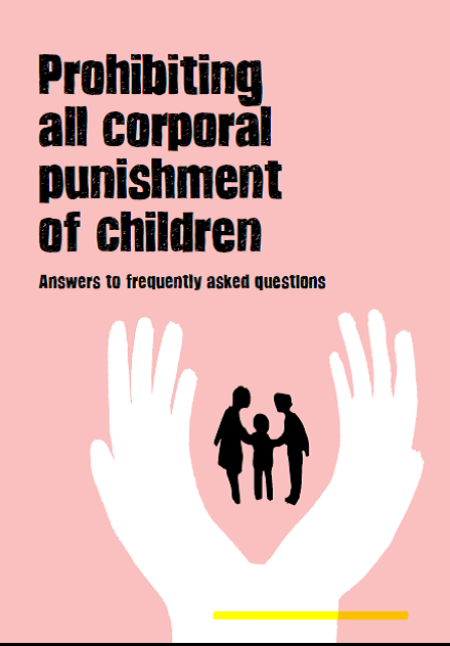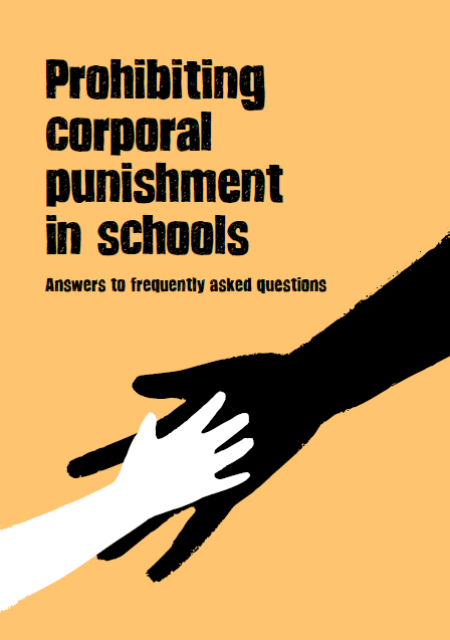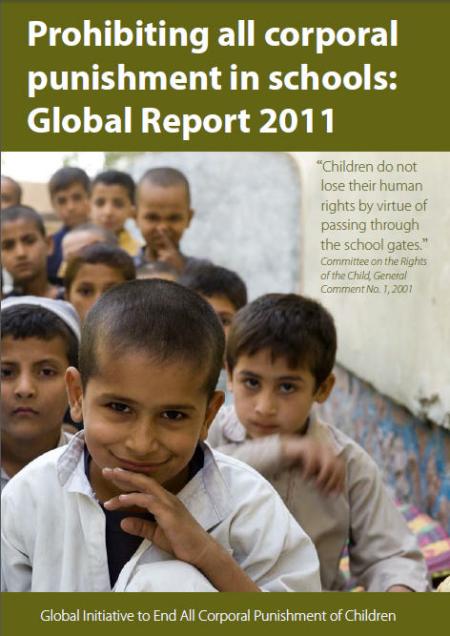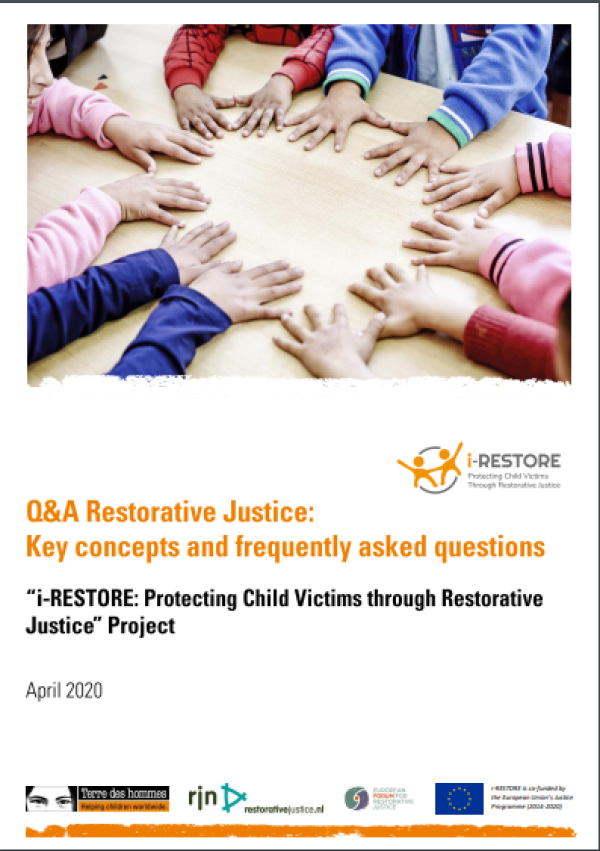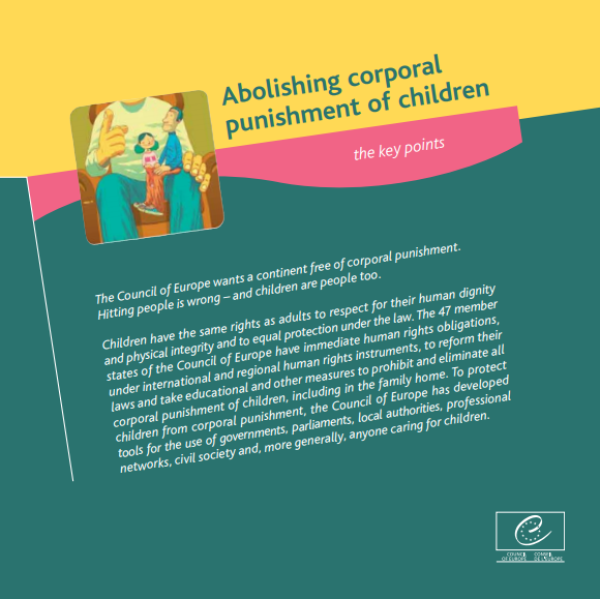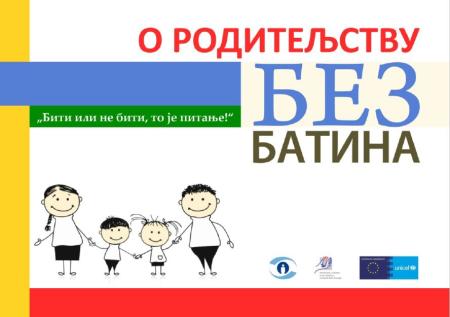
This is one of three booklets produced by the Global Initiative to End All Corporal Punishment with support from Save the Children Sweden. These booklets should give parents and carers, government officials, education professionals and others the confidence to support and pursue legal reform and move a step closer to realising children’s right to protection from all forms of violence in all settings.
This first booklet ”Prohibiting all Corporal Punishment of Children: Answers to frequently asked questions” aims to provide answers to the most frequently asked questions and dispel common misperceptions about the reasons for prohibition and its impact on families.
The second booklet ”Stop Hitting! Banning all Corporal Punishment of Children: Questions and answers for children and young people” is available here - https://childhub.org/en/child-protection-online-library/stop-hitting-ban...
The third booklet ”Prohibiting Corporal Punishment in Schools: Answers to frequently asked questions” is available here - https://childhub.org/en/child-protection-online-library/prohibiting-corp...


